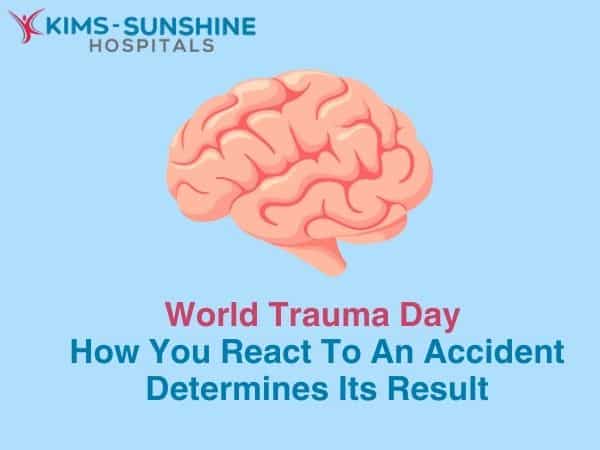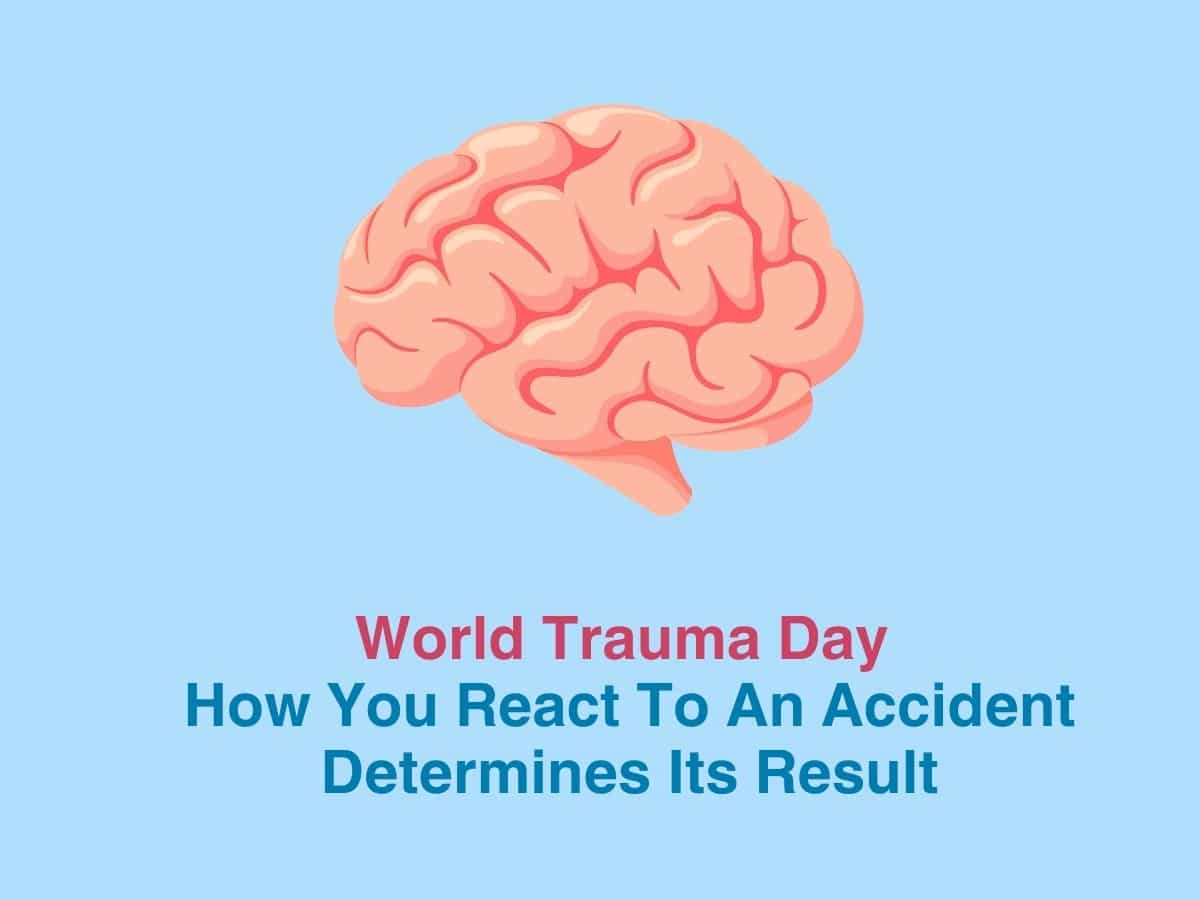
Is World Trauma Day- How you React to an Accident Determines its Result

Did you know that almost 10% of the Indian population dies due to traumatic accidents every year? That is a very large number, considering how much our population is. We face very unique issues here- we either do not have the right medical infrastructure necessary to deal with critical cases or we have those but fall behind on the medical expertise needed to administer those cases. The first hour is often called the ‘golden hour’ in trauma care- where minimal medical intervention can achieve the maximal results. But many individuals do not get the requisite medical care, leading to poorer prognosis in the long run.
Why Is Celebrating World Trauma Day Important?
This is why becoming more aware about how to respond after an accident occurs is important. This is different from just administering first aid. India has a continually growing vehicular infrastructure and accounts for almost 6% of all the road accidents that occur globally. Recent studies have shown that there is an accident every 3 minutes in India. The populace needs to learn to take safety rules and legislation more seriously.
The Theme For This Year
This year, the theme is ‘Workplace Injuries- Prevention and Management’. This is mainly to help employers and employees realise how proper preparedness can really help save lives and resources in an industrial setting. This can be done by holding hands-on workshops for employees to attend, by providing various cause-effect case reports and also teaching them how to react to a particular incident which may occur anytime. This day was first celebrated in New Delhi in 2011, owing to the large numbers of road accident related casualties. Now, this annual event has come a long way and made a positive impact in many ways.
What Are Some Issues We Face?
In India, we have tertiary and quaternary medical care facilities in the cities but what happens in areas outside the urbanised zone? Some of the issues faced are as follows-
- Insufficient hospital beds
- No proper training for medical personnel
- Shortage of ambulances
- A sheer lack of resources in rural areas
Conclusion
Accidents are mostly preventable in many ways. Learning how to do that can really help save lives. The sad thing with traumatic injury is it can disable and disfigure someone for life. Plus, dealing with an accident can be a heavy financial burden for low or middle income families. We should place a great emphasis on people learning safety rules and following them and not giving it up as ‘jugaad’. We should teach children from a young age as they emulate what adults do. Blood donation needs to be encouraged. What other measures can you think of?
Frequently Asked Questions
Who organises World Trauma Day every year?
How important is pre-hospital care in dealing with trauma?
How can we stay safe on roads?
How can we all help?
What does a trauma surgeon or team do in a hospital?






